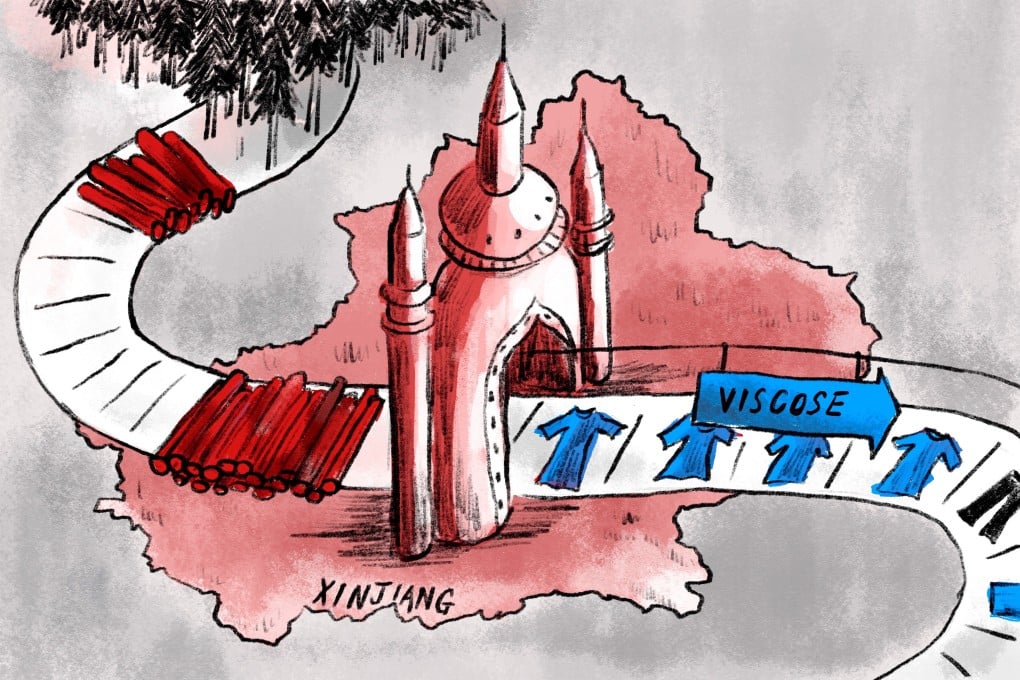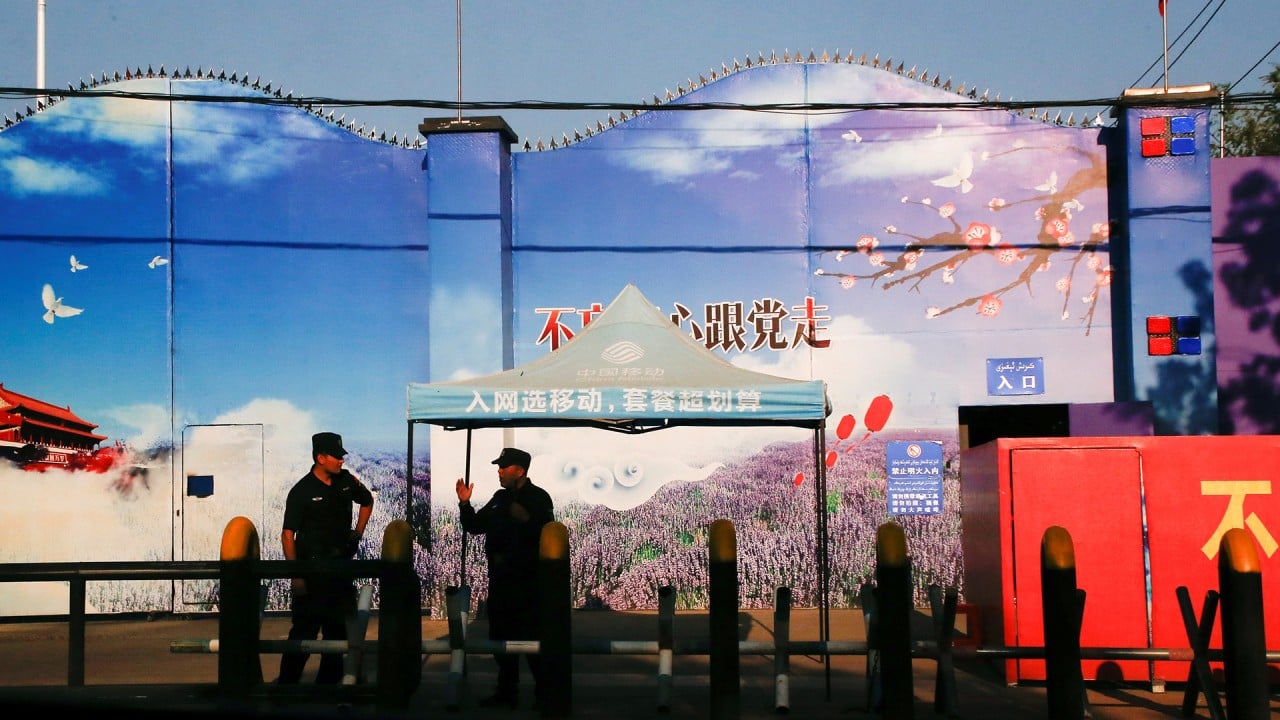Exclusive | Beyond cotton, another thread in Xinjiang supply chain creates new snag for global textile firms
- An SCMP examination traces the supply chain for viscose rayon from Finland’s forests to state-run factories in Xinjiang – and then fanning out around the world
- Analysis reveals viscose producers with links to sanctioned entities and factories within miles of suspected detention camps in Xinjiang

Nestled among forests and icy lakes, a 54-year-old factory in the tiny Finnish village of Uimaharju churns out pulp made from the dense woodland that blankets the country.
It is a world away from the clothing stores of Helsinki, Hong Kong and New York – and even further detached from the vast deserts and state-run factories of China’s Xinjiang Uygur autonomous region.
The thread that binds them all is a soft, silky fibre called viscose. Made from wood pulp, viscose, or rayon, is the world’s third most commonly used clothing material after polyester and cotton.
Its highly chemical production process can be extremely hazardous to workers, but viscose could become even more politically toxic given the location of one of the fibre’s primary production bases.

02:27
US declares China has committed genocide in its treatment of Uygurs in Xinjiang
Viscose is produced in huge volumes in Xinjiang, a region where Beijing is accused of putting 1 million Uygurs and other Muslim ethnic minority groups in detention camps and subjecting many of them to forced labour.
Xinjiang cotton is already attracting the world’s attention, and state documents and customs records show that the authorities in the region have been working to turn it into a major producer of viscose and are already selling it to dozens of countries.